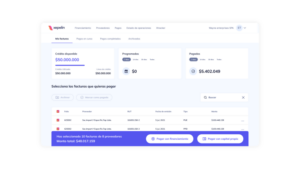Part of any long-term business strategy should look at when and how to level up – whether it’s to deal with an increase in consumer demand, or in a bid to grow the market share of your business. An area that might be holding you back could be your current eCommerce platform.
If you’ve noticed your sales are flatlining, it could be a sign that you’ve outgrown your current offering and perhaps a change is needed. With a reported 17.2 million UK consumers expected to make permanent changes to their shopping habits in favour of online stores, now could be the perfect time for you to assess your eCommerce offerings.
Small businesses often start their online shop using user friendly and hosted eCommerce platforms because they’re easy to set up and can accommodate burgeoning businesses. But when these businesses grow and their traffic increases, these user-friendly platforms can soon stagnate the business’ ability to grow.
1. You can’t meet your objectives
As an eCommerce business, your website is the key component that should facilitate your growth and ambitions. If your current platform is limiting your evolution or stopping you from hitting your KPIs, a change is undoubtedly in order.
If your website isn’t converting traffic into sales, or you’re unable to extend your range of product offerings – it’s time to look for an eCommerce platform that can support these objectives.
2. Unable to customise or develop your UX
One of the most common reasons to switch your platform is because you’re unable to customise or develop your user experience (UX). Whilst basic platforms often have a standardised template, most will lack the features that will allow for more developed UX elements.
Consumers are increasingly looking for a seamless transaction with features including easy online payment processes and personalisation, and anything that inhibits this could have them seeking the same products or services elsewhere.
3. Slow website performance
As your audience increases, and you increase your product offerings as well as website traffic, you may find that your current platform begins to slow down or loads more slowly. Not only can this affect the user journey, but it can actually increase your bounce rate – and therefore have a severe impact on sales.
Website performance can also be hindered by adding more and more functionality to an existing platform that stretches its capabilities. Furthermore, short-term fixes can often build technical debt – causing issues with integrations and performance down the line.
Switching to an integrated platform with dedicated hosting can give you greater control when it comes to speed and integration.
4. Security vulnerability
Like any business, security should be at the forefront of your mind and having robust online security is important not only for your business, but your customers too. Whilst basic platforms offer some security, they can be more vulnerable to cyber-attacks and hacking.
If you’re worried about security or you’re dealing with high ATVs, it’s time to switch up your platform. Each platform will manage security differently, so understanding what part you play in controlling that risk is essential to maintain your protection.
5. Lack of control over technical SEO
Some of the most popular eCommerce sites lack advanced technical SEO features. Any business that hopes to capitalise on the migration of consumers to the online market knows how important a robust SEO strategy is.
But if you want more control over technical SEO components and conversion rates for your website, then a more advanced eCommerce platform can help accommodate this.
6. You can’t reach international customers
Thanks to the internet, the world is a much smaller place. Not only is this having an impact on our work sectors, but also on our ability to connect with consumers from the other side of the globe. However, if your current eCommerce site makes it impossible to connect with potential buyers from around the world, you could be missing out on a huge untapped market.
Currency conversion is often a significant hurdle when it comes to internationalisation. Platforms like Magento offer a simple solution to provide currency conversions on product pages, without the need for third-party software – streamlining the user experience for both the consumer and merchant.
If you can’t reach them due to the technical limitations of your current ecommerce platform, it might be time to switch to a platform that’s geared up to be global-friendly.
Where to go next?
Upgrading from your current basic platform to a more robust and advanced one is perhaps the simplest and most effective way to solve your problems. A specialist agency can help to develop your eCommerce offering on platforms like Magento, and provide support to integrate new and existing systems. Moving to a more advanced eCommerce platform can often be the key to unlocking the full potential of your business.









